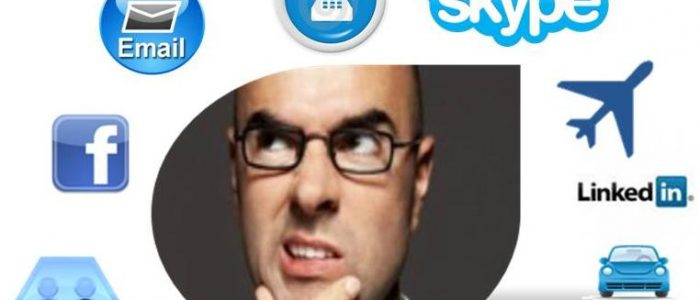When To E-Mail, When to Meet
The Covid pandemic has made more acute the need to consider how we communicate. As always, we at Mobus Creative Negotiating have been on the watch for new scholarly research which helps address issues important to negotiators. We want to bring to your attention an enlightening article by Andrew Brodsky, management professor at U Texas – Austin, in the summer issue of the Journal of Applied Psychology (Virtual surface acting in workplace interactions: Choosing the best technology to fit the task.). Brodksy’s work is conveniently summarized in a Wall Street Journal article by Susan Pinker (“The Medium is Still the Message,” As a Communications Medium, Email Ranks Low and Sows Doubt – behind a paywall) and in a UT article (Different Virtual Communication Methods Convey Different Meanings).
Brodsky set out to research how our emotions come across when we use different communication medium. As he framed the issue, “A common requirement of workers is that they are expected to display certain emotions to customers, teammates, and supervisors, regardless of how they are actually feeling (e.g., ‘service with a smile’). However, the risks of being perceived as surface acting—displaying inauthentic emotions even when required by the job—can be severe, as people react negatively to those who are perceived as inauthentic.”
He did several studies, confronting people with 1,500 subjects and asking them to evaluate the credibility of the sender. He found the same results with 500 U.S. employees, 400 U.S. managers, and 600 parents and teachers at an international school in Vietnam.
Brodsky’s basic conclusions: If the emotion behind the message is authentic, it should be delivered in person or through live video. If it’s not, then email. Phone calls offer a middle ground; they hide telltale body language while still seeming high effort and, therefore, are more believable than email. Brodsky found that the richer the communications medium (such as face-to-face), the quicker his subjects were to detect heartfelt emotions compared to faking it. He characterizes that happens in the rich communications media as “emotional leakage” – your true emotions leak out no matter what you do to disguise them.
Expressing your true feelings makes you seem more authentic and trustworthy, so the usual advice has been to find a way to get those feelings across. Plus a face-to-face meeting (or video call) was seen by Brodsky’s subjects to reflect more effort – a higher degree of commitment to the relationship – than an email. Brodsky particularly recommends face-to-face meetings for on-going relationships that are important to both parties.
But sometimes it is a good idea to mask your true feelings. If you cannot stand the other person or if you are jealous at what you see their undeserved success, it would be graceless to show how you really feel. And your true emotions will come across if you speak person-to-person, as much in your body language and tone as in the words you say. In that situation, it is much better to email – understanding that email is seen as “massively inauthentic,” in Brodsky’s words. In other words, when you need to fake it, use e-mail.
And if you do email, then another Brodsky study warns: pay attention to typos, because they are seen as revealing your true emotions.

